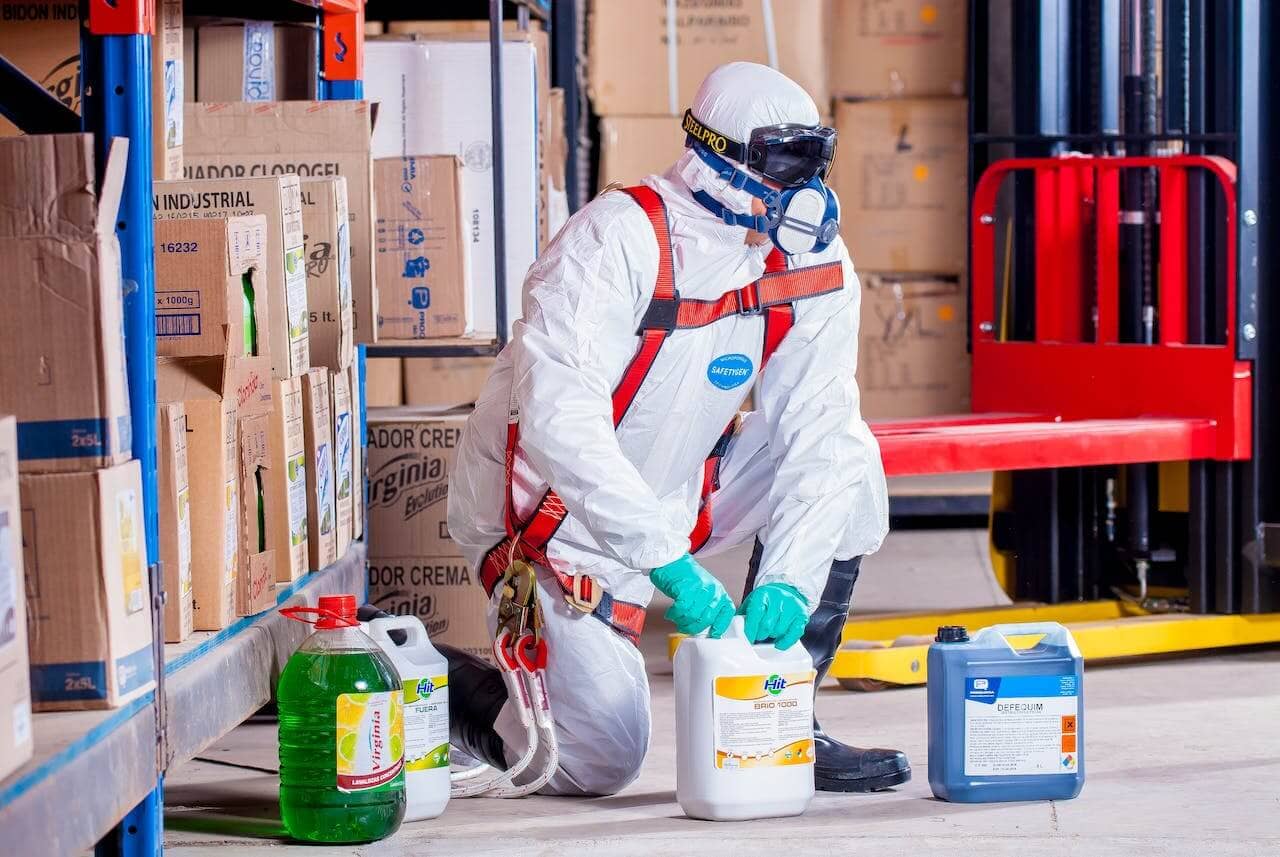In the realm of workplace safety, the acronym RIDDOR holds significant importance. RIDDOR stands for Reporting of Injuries, Diseases, and Dangerous Occurrences Regulations, a set of regulations that plays a pivotal role in ensuring the safety and well-being of workers in the United Kingdom. While this might sound like a mouthful of jargon, its purpose is quite simple: to keep people safe at work. In this article, we’ll delve into the world of RIDDOR, exploring what it is, why it’s important in the workplace, and how it affects both employers and employees.
Understanding RIDDOR: What Is It?
Before we dive deeper into the significance of RIDDOR, let’s start with the basics: what exactly is RIDDOR? RIDDOR is a set of regulations put in place by the UK government to ensure that all employers, self-employed individuals, and people in control of work premises report and record certain work-related accidents, diseases, and dangerous occurrences. This reporting system is vital in maintaining workplace safety by tracking incidents and illnesses, identifying trends, and implementing preventive measures.
The Purpose of RIDDOR Regulations
The primary purpose of RIDDOR regulations is to create a safer work environment for everyone. They serve several crucial functions:
Incident Monitoring and Prevention
RIDDOR requires employers and others in control of work premises to report and record a wide range of incidents, from minor injuries to fatalities. This data collection helps authorities, employers, and safety professionals to monitor and analyse workplace incidents. By identifying patterns and potential hazards, they can take proactive measures to prevent future accidents.
Protection of Workers
One of the most critical aspects of RIDDOR is the protection of workers. When incidents occur, RIDDOR ensures that the affected employees receive the necessary medical care and that their rights are safeguarded. This includes compensation for their injuries or illnesses, if applicable.
Legal Compliance
RIDDOR is not merely a guideline but a legal requirement. Failure to report an incident or comply with RIDDOR regulations can result in legal consequences for employers. These regulations hold employers accountable and encourage them to prioritise safety in the workplace.
Why Is RIDDOR Important in the Workplace?
Workplace safety is a fundamental human right, and RIDDOR plays a vital role in upholding this right. Here are some compelling reasons why RIDDOR is crucial for maintaining workplace safety:
Data-Driven Decision Making
RIDDOR reporting provides a valuable source of data for employers, regulatory bodies, and safety professionals. By analysing this data, they can make informed decisions to improve workplace safety. For example, if a company notices a pattern of accidents involving a specific machine, they can take immediate action to rectify the issue and prevent further injuries.
Accountability
RIDDOR regulations establish a clear chain of accountability. When an incident occurs, there are specific reporting and investigation procedures that must be followed. This accountability ensures that incidents are not swept under the rug and that responsible parties are held answerable for their actions or negligence.
Incident Prevention
Preventing accidents and illnesses is far more cost-effective and humane than dealing with the consequences. RIDDOR’s reporting requirements help employers and regulators identify potential hazards and take proactive steps to prevent incidents. This proactive approach benefits both workers and employers by reducing the human and financial toll of workplace incidents.
Employee Welfare
At the heart of RIDDOR’s importance lies the well-being of employees. When an accident or illness occurs, RIDDOR ensures that employees receive the necessary medical care and compensation. It offers a safety net for workers and their families during challenging times.
Legal Consequences
Non-compliance with RIDDOR can have serious legal ramifications for employers. The threat of legal action and penalties serves as a powerful incentive for businesses to adhere to safety regulations and prioritise the welfare of their workers.
The Impact of RIDDOR on Employers
Now that we understand the significance of RIDDOR, let’s explore how it impacts employers and their responsibilities in ensuring workplace safety.
Reporting Requirements
Employers have a legal obligation to report certain types of incidents and occurrences to the appropriate authorities. These include:
- Fatal accidents
- Major injuries
- Work-related diseases
- Dangerous occurrences (near misses)
- Gas incidents
- Injuries to members of the public on workplace premises
The reporting process involves completing a specific form (F2508) and submitting it to the Incident Contact Centre, which is managed by the Health and Safety Executive (HSE).
Record Keeping
In addition to reporting, employers must maintain records of all reportable incidents, injuries, and diseases. These records should be kept for at least three years and are subject to inspection by regulatory bodies.
Investigation and Prevention
Employers are also responsible for investigating the root causes of incidents and implementing preventive measures. This includes identifying any deficiencies in their safety procedures and rectifying them to avoid future incidents.
Employee Responsibilities
While employers bear the primary responsibility for RIDDOR compliance, employees also have a role to play in ensuring workplace safety. Employees should:
- Be aware of RIDDOR regulations and their rights under these regulations.
- Report any work-related accidents or illnesses to their employer promptly.
- Cooperate with their employer and regulatory bodies during investigations.
- Take necessary precautions to protect their own safety and that of their coworkers.
The Benefits of RIDDOR
RIDDOR is not just about compliance; it’s about creating a safer and healthier workplace for all. Here are some of the benefits of implementing RIDDOR regulations in the workplace:
Reduced Incidents
RIDDOR encourages employers to proactively identify and rectify potential hazards, leading to a decrease in workplace incidents. When safety is prioritised, fewer accidents and illnesses occur, reducing human suffering and financial costs.
Improved Employee Morale
Knowing that their well-being is a top priority, employees are likely to have higher morale and job satisfaction. A safe workplace fosters trust between employers and workers, leading to a positive work environment.
Legal Protection
RIDDOR provides legal protection for both employers and employees. Employers who comply with RIDDOR regulations are less likely to face legal consequences, while employees are assured of their rights and compensation in case of incidents.
Enhanced Reputation
Companies that prioritise safety and adhere to RIDDOR regulations often have a better reputation. This can attract quality talent, customers, and business partners, leading to long-term success.
Staying Informed and Compliant
To reap the benefits of RIDDOR and ensure workplace safety, it’s essential for employers and employees to stay informed and compliant. This involves regular training, awareness campaigns, and fostering a culture of safety within the workplace.
Employers should:
- Educate their employees about RIDDOR regulations.
- Provide training on how to identify and report incidents.
- Establish clear procedures for incident reporting and investigation.
- Continuously monitor and improve safety practices in the workplace.
Employees, on the other hand, should:
- Be vigilant about their safety and the safety of their colleagues.
- Report any incidents or potential hazards promptly.
- Participate in safety training and awareness programs.
- Collaborate with their employers to maintain a safe work environment.
Making an Accident at Work Claim with National Claims
Now that we’ve discussed the vital role of RIDDOR in workplace safety, it’s essential to know what steps to take if you’ve been injured or have fallen ill due to a workplace incident. At National Claims, we specialise in assisting individuals in making accident at work claims. We understand that accidents can happen, even in the safest of workplaces, and we’re here to support you in your time of need.

How National Claims Can Help
Free Consultation: Our dedicated team of legal experts offers a free initial consultation to assess the details of your case. This allows us to determine the validity of your claim and provide you with expert guidance on the next steps.
No Win, No Fee: At National Claims, we operate on a no win, no fee basis. This means you won’t incur any legal fees if your claim is unsuccessful. We’re committed to ensuring that you receive the compensation you deserve.
Expert Legal Advice: Our experienced solicitors specialise in workplace injury claims. They will guide you through the entire claims process, ensuring that your rights are protected and that you receive the compensation you are entitled to.
Access to Medical Experts: We work with a network of medical professionals who can assess your injuries and provide expert medical reports to support your claim. This ensures that the extent of your injuries is properly documented.
Maximum Compensation: Our goal is to secure the maximum compensation possible for your injuries, lost wages, medical expenses, and any additional costs incurred as a result of the incident.
Conclusion
In conclusion, RIDDOR, the Reporting of Injuries, Diseases, and Dangerous Occurrences Regulations, is not just a set of regulations; it’s a fundamental framework for ensuring workplace safety and protecting the rights and well-being of employees. RIDDOR empowers employers, employees, and regulatory bodies to work together in creating safer work environments, preventing incidents, and providing support when accidents do occur.
By understanding the importance of RIDDOR and staying informed and compliant with its regulations, both employers and employees can contribute to a safer, more productive, and more fulfilling work experience. And in the unfortunate event of a workplace incident, organisations like National Claims stand ready to support individuals in their pursuit of justice and compensation, ensuring that their rights are protected and that they receive the assistance they need to recover and move forward. Workplace safety is not just a goal; it’s a shared responsibility that requires vigilance, accountability, and a commitment to the well-being of all.
Start your claim with one of our claims specialists by contacting us today.
Click below to see why we are one of the most trusted claims management companies in the UK.

We’re proud of our excellent customer reviews
We thrive on delivering exceptional service and ensuring our clients’ satisfaction. Don’t just take our word for it. Check out some of our independent reviews to see what our clients have to say.
Excellent

This firm is excellent, they sorted out my car pay out and injury claim very fast, they always communicate with you all the time.

My accident case was dealt with confidence and with great result of the outcome, especially James kept me informed all the time.

I was very impressed at the way my inquiry was treated. I was listened to attentively and everything I needed to know was explained to me.






